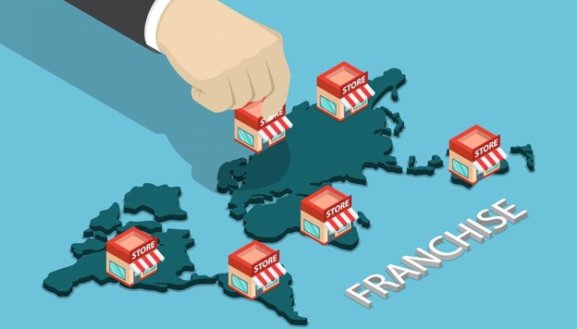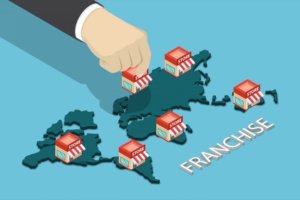
What is franchising?

While there is no legislation specific to franchising in Nigeria, One of the franchisors interviewed offered the opinion that franchising was “a lazy man’s approach to profitable business leveraging on the brand name, intellectual properties, processes, products and goodwill of another (the franchisor) to undertake business with payment of a fee either as a one-off or on a continuing basis”.
On visiting a shopping mall or a commercial complex almost anywhere in the world, one noticeable trend to be found is the presence of internationally renowned brands across industries ranging from fast-food restaurants, clothing retail stores, to service providers. Many of such enterprises do not belong to any of the large multinational chains but are, in fact, independently-owned businesses of local entrepreneurs.
So, how is it that entrepreneurs around the globe can sell the same products, use the same trademarks, have the same visual layout, or almost identically dressed employees? Are these local entrepreneurs legally allowed to do this? The answer is YES, through the Franchise Business Model.
Although the Nigerian franchise industry is relatively budding, it utilizes a globally proven model for business expansion beyond its local borders.
As the pioneer franchise consulting company in Nigeria, Franchise Business Development Services (FBDS) emerged because building a successful scalable enterprise is a tough job only a few entrepreneurs succeed at. Our research findings depict an 80% MSME failure rate in Nigeria. To combat this alarming percentage, Franchise Business Development Services (FBDS) is passionate about helping people who cannot build businesses to buy from successful and proven brands, at the same time helping such successful brands to expand beyond borders through franchising. We are on a mission to make franchising the preferred business model in Nigeria, as a strategic means of building sustainable businesses that operate best practices.
Franchise Business Development Services (FBDS) provides end-to-end franchise consulting services primarily to three categories of our clients: Companies seeking to franchise a business, international companies who are already franchising and want to expand to Nigeria/ Africa, and Entrepreneurs aspiring to buy a franchise.
Helping you with your expansion plan
Our primary goal is to help in the development and delivery of successful business expansion services in our chosen markets. We work towards achieving this by supporting the building, sustaining, and scaling of successful business models through franchising.
Our goal is streamlined to help with these processes:
Selecting the right franchise to invest in can be tough with a high level of risk. Through our Franchise Matchmaking services, we vet and thoroughly assess investors with interest in franchising based on their interest, passion, investment capacity, and credibility, then pair them with Franchises they are best suited for.
Franchise Business Development Services (FBDS) supplier members of International Franchise Association (IFA), to provide professional franchise support services to franchise operators.
Franchise Business Development Services (FBDS) has all the tools and expertise to effectively guide you on your journey. We will guide you through the process of developing a solid franchise.
Franchise Business Development Services (FBDS) supports businesses to launch successful international franchises with our feasibility studies and market entry strategies.
We are building new roads to enterprise, social and economic development through our unique business model. Businesses in Nigeria can now expand beyond the capacity of the owners through collaborations, business optimization and standardization, business sustainability, access to low-cost fund or angel investors, and outlive their owners through franchising.
Micro, Small and Medium Enterprises (MSMEs) in Nigeria have
employed 60 million people from a total number of 37 million MSMEs.